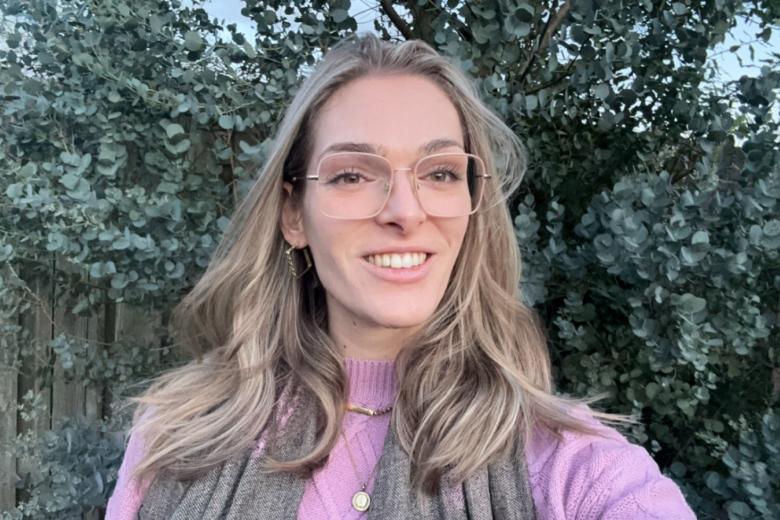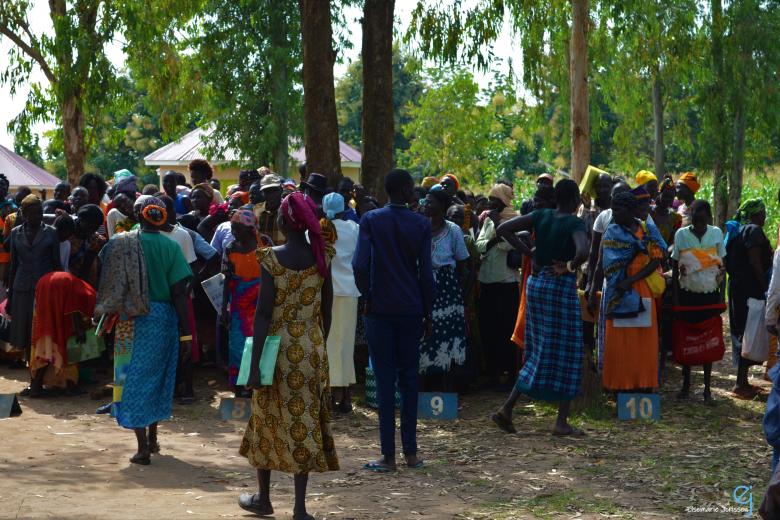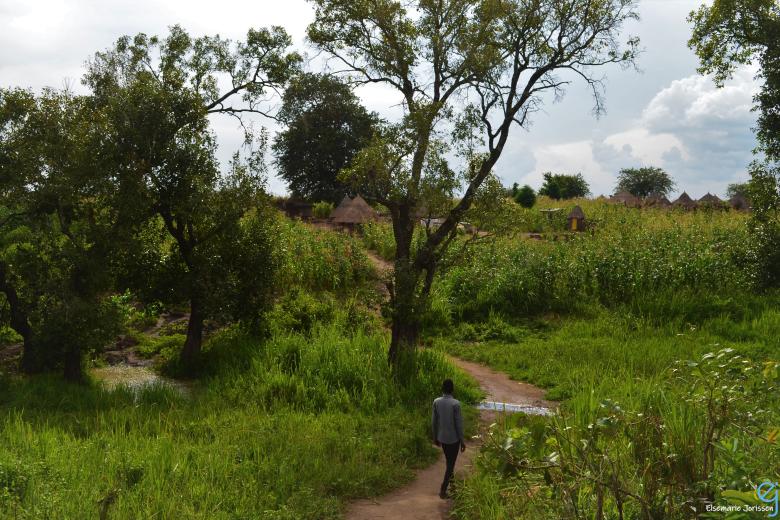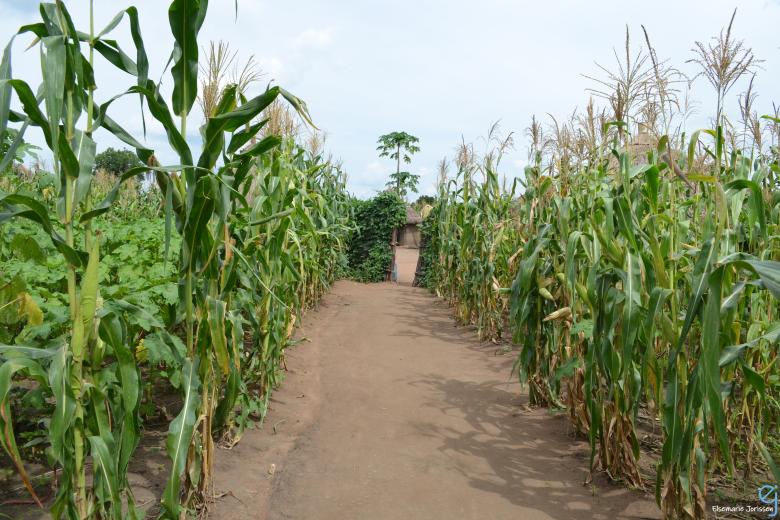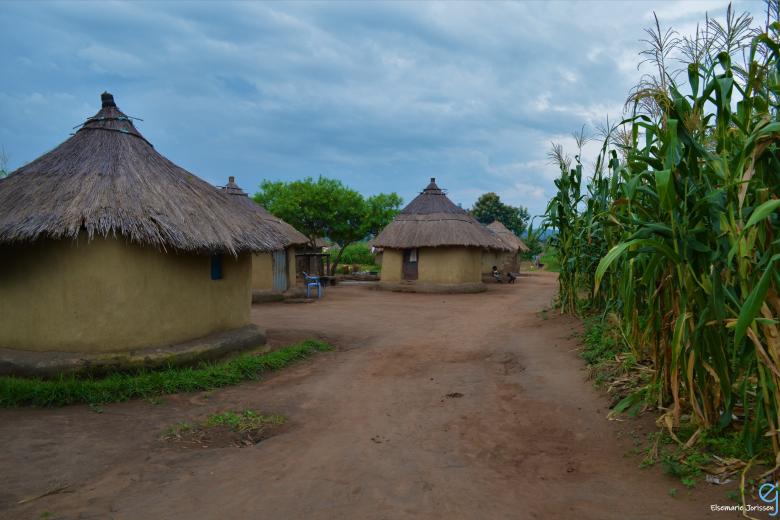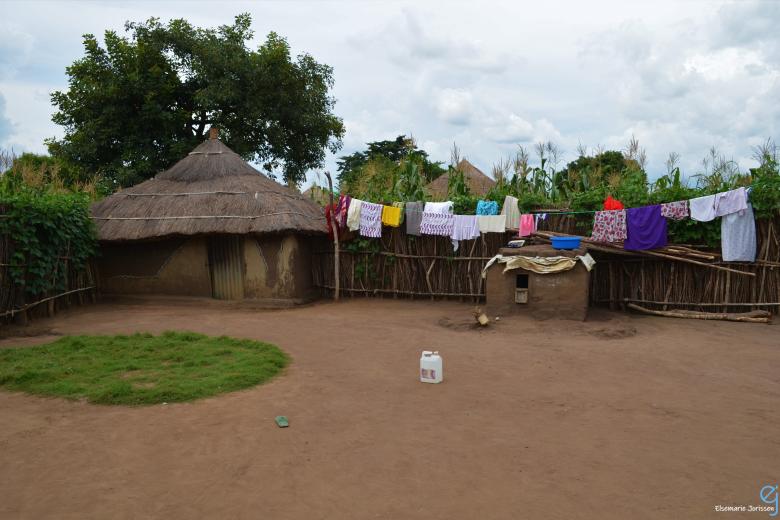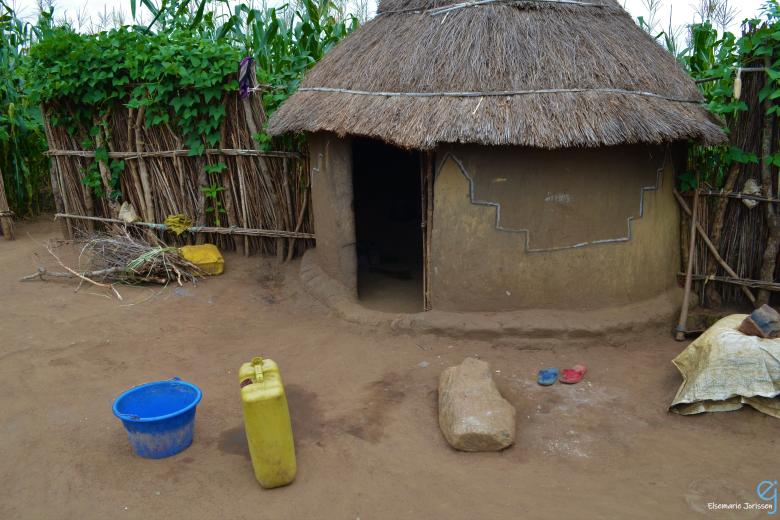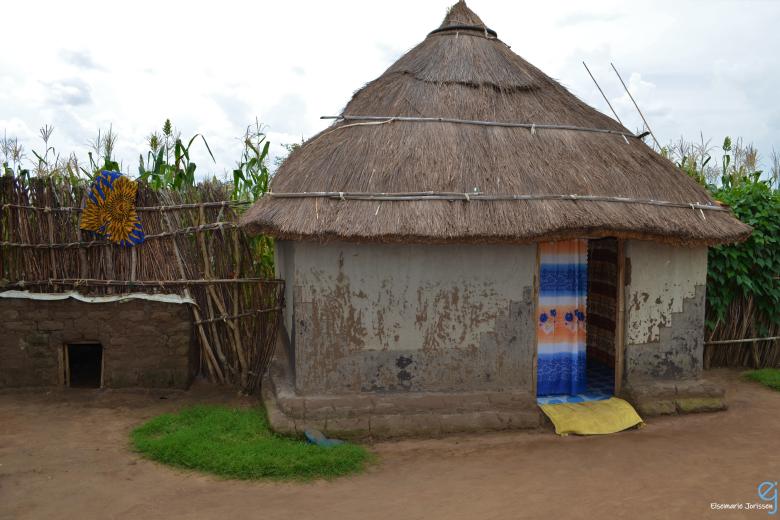Master’s student Elsemarie visited the Ugandan border area
Elsemarie Jorissen took the expression "Go the extra mile" very literally: in the summer of 2019, she travelled to Uganda, to a place near the border with South Sudan. Not for a holiday, but for field research on a refugee settlement.
Why Uganda?
Inspired by her relationship with her partner of Ugandan heritage, Elsemarie researched intercultural relations as part of her bachelor's degree in Human Geography and Spatial Planning at Utrecht University. She was intrigued by the divide between policy and practice, so she decided to do a master's degree in Public Policy and Human Development in Maastricht. After a few recreational visits to Uganda with her partner, she decided to use her Ugandan network to conduct field research there.
Adjumani, Uganda - 50 kilometres from the border with South Sudan
Refugees in Uganda are given a plot of land by the government, meant to grow their own food to make them less dependent on food aid. Elsemarie spent a month in Uganda researching how this policy works in practice. Have the refugees become more self-sufficient? Is the policy as successful as it is generous? To find out, she talked to South Sudanese refugees in a Ugandan refugee settlement near Adjumani, 50 kilometres from the border with South Sudan.
The ethical dilemmas of field research
Food aid is distributed in the refugee settlement once a month, so it has to last the refugees 30 days. During Elsemarie's visit, the shipment of food was delayed by a week, so many of the people she spoke to could only eat once a day. That sometimes led to difficult situations.
"One woman told her story with tears in her eyes, and then asked for 2000 shillings, which is less than €0.50. But, as a researcher, I couldn't give it to her, as the refugees might think that they could get paid for giving an interview."
Elsemarie's stay in a relatively luxurious hotel, a 30-minute drive from the refugee settlement, also got her thinking. "A single meal there was worth as much as all of their food for half a month." For safety reasons, she could only leave her hotel during the day, preferably with an escort, which sometimes made her feel restricted in her freedom of movement. Altogether, it was quite a confrontational experience.
- Keep reading below the photos -
Generosity has its drawbacks
Elsemarie's interviews with the refugees establish the impression that the generous policy in Northern Uganda is not working. The plot of land the refugees are given is small, and is also used to live on, leaving little room to grow food. In addition, the land in the north is not owned by the government but by the local population, who often violate the lease agreements and take the land back from the refugees. The land there is also drier and less suited to growing crops than in other parts of Uganda. Her conclusion: it is a national policy, but the implementation does not work in the north of the country.
Elsemarie hopes to complete her master's thesis on this subject in December. She plans to share the results with Ugandan policymakers and the refugees in the settlement where the research was conducted.
Important lesson: preparation is the key to success
Elsemarie discovered that field work mostly involves: preparation, preparation and more preparation. Arranging the possibility for her to work in Uganda took a lot of time (in addition to the usual research activities). This entails arranging things like obtaining permission from the government to research the refugee settlement, funding, transport, accommodation and interpreters. Building and using a network proved essential.
Looking back, she only regrets one thing: that she was unable to obtain more funding. That would have enabled her to better solve unforeseen setbacks, such as the breakdown of the car. However, this also forced her to improvise, which is an important skill in field work: it doesn't matter how good the preparation is, something unexpected always happens.
Also read
-
UnliMited-Students Buddy Programme
Are you a student with a disability, chronic illness or neurodivergence? Would you like to connect with a fellow student in a similar situation? Join UnliMited-Students Buddy Programme!
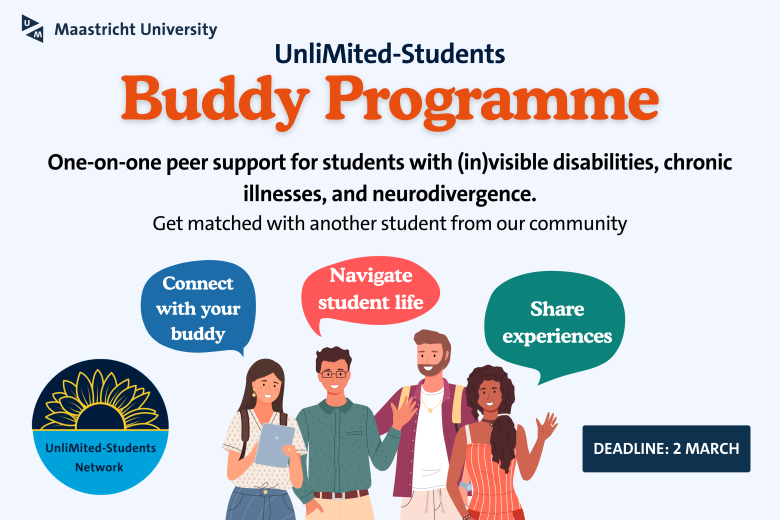
-
Measuring the true impact of Epilepsy
Epilepsy is a condition that extends far beyond its visible symptoms, affecting the daily lives, well-being, and financial stability of patients and their caregivers. For Darin Elabbasy, PhD student at CAPHRI (VHC), understanding these broader impacts is at the heart of her work.

-
Studying after an accident: the story of Imke vd Velden
In 2020, Imke van der Velden completed her bachelor's programme at University College Venlo (UCV) with flying colours. As icing on the cake, she won the UCV bachelor's thesis prize. Thanks to a Region Noord-Limburg Scholarship, Imke was able to start a master's programme in September that year. But...
